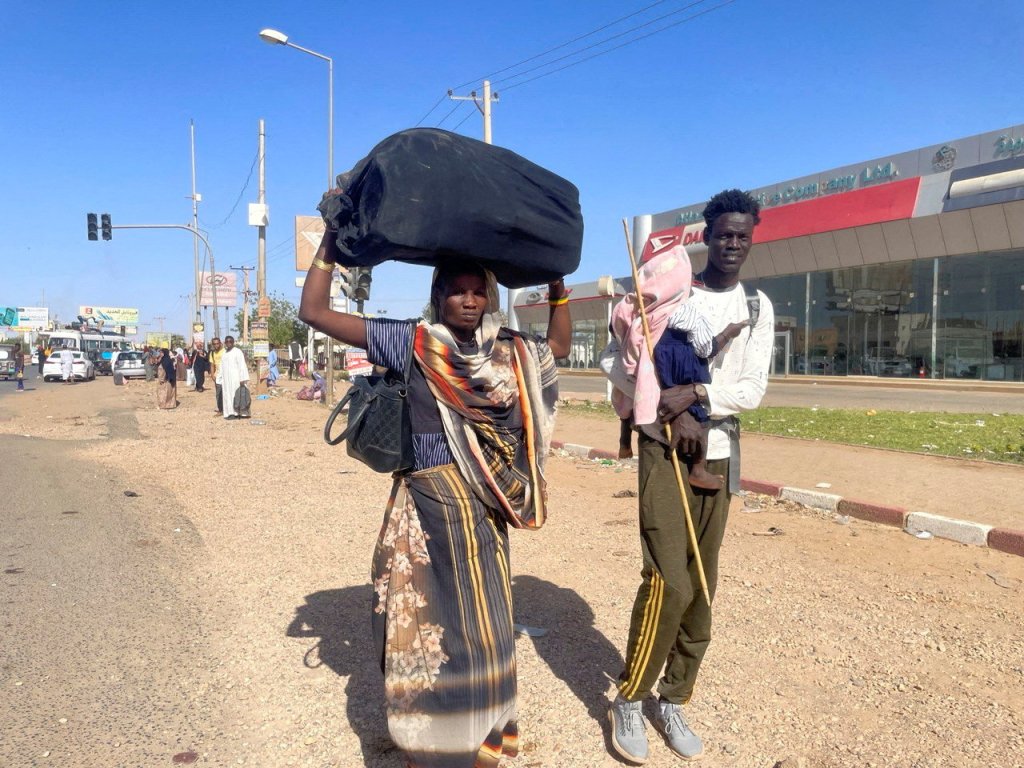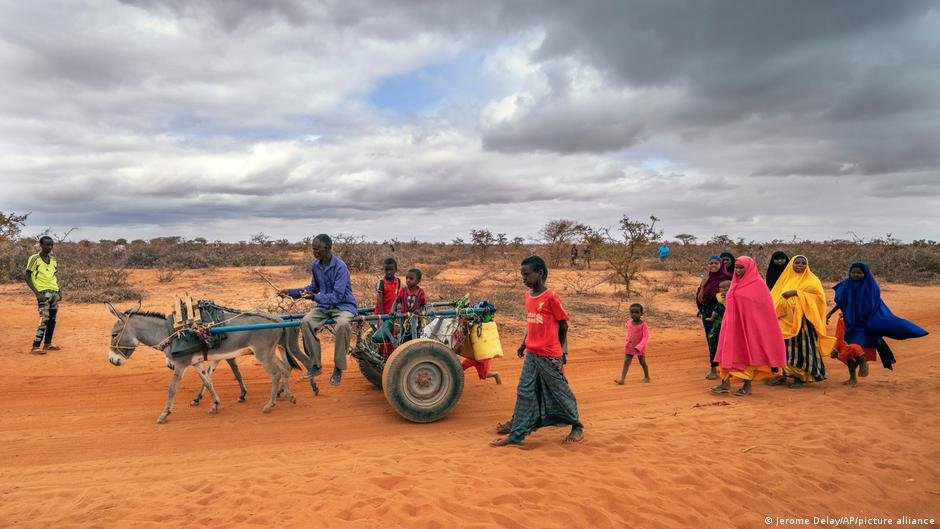The second ministerial meeting of the Khartoum Process, which was held on April 9 in Egypt, ended with a declaration and an action plan containing important new elements for migration management, integrating for the first time the effects of climate change and war on migration.
The Cairo Ministerial Declaration and Action Plan adopted on April 9 in Egypt's new administrative capital, about 60 kilometers east of Cairo, "are the first of their kind in the Khartoum Process" and include the effects of climate change and wars on immigration," declared the director of the Center for Migration Policy Development (ICMPD) Michael Spindelegger.
Egypt currently holds the rotating presidency of the Khartoum Process initiative. The Khartoum process was set up as a platform for political cooperation amongst the countries along the migration route between the Horn of Africa and Europe. According to its website, "It aims at establishing a continuous dialog for enhanced cooperation on migration and mobility."

"The process also seeks to support member states in identifying concrete projects to address trafficking in human beings and the smuggling of migrants and other migration-related areas," states the website.
The comments came at the end of a meeting that brought together ministers handling migration issues for the Khartoum Process countries as well as high-level international representatives and stakeholders.
Read AlsoSudanese factions accused of weaponizing hunger as ceasefire talks drag on
New strategic framework for dialog
Speaking at a plenary session, Spindelegger, the former Austrian deputy chancellor, noted that the Khartoum Process had in its early years focused on the fight against human trafficking but that, since the Valletta summit in November 2015, the process had broadened to five sectors included in the joint action plan signed in the Maltese capital.
He stressed that the Cairo ministerial declaration and the action plan came after over ten years of productive partnership and "opens a new chapter" for dialog."
The former leader of the Austrian People's Party (OVP) said that the new strategic framework would provide a "solid base" for a more advantageous collaboration by adopting an improved approach in a sphere that has an ever wider range of subjects, such as forced displacement and climate change.
He added that the new framework would also provide a basis to engage in a more in-depth debate on issues such as migration for work purposes, collaboration in skills development, and the involvement of economic priorities and the private sector in migration cooperation.
The April 9 meeting was the second one at the ministerial level in the Khartoum Process after a first one in 2014.
Read AlsoRefugees in Sudan forced to flee for the second time
Migration and mobility
One of the main aims of this latest meeting for delegates, was to strengthen "dialog and cooperation" in migration and mobility issues, to promote sustainable solutions, strengthen partnerships, and foster collaboration at the regional level, according to a press release issued by the Egyptian government.

The Khartoum Process, chaired by Egypt since April 2024, involves 40 members including the European Union, Switzerland, Norway, Horn of Africa countries, East Africa countries, the European Commission, and the African Union Commission. The International Organization for Migration (IOM), the United Nations Office on Drugs and Crime (UNODC), and the UN Refugee Agency (UNHCR) also take part.
"The continuity and expansion of dialog between Europe and Africa is a necessary pillar for Italy, which firmly supports regional platforms for dialog including the Khartoum Process," Italian interior minister Matteo Piantedosi said in a statement after the Cairo meeting.
The two documents approved, he noted, "open new prospects for collaboration" on directions that range from fighting trafficking to the prevention of illegal migration and the strengthening of cooperation on the issue of repatriation."
Piantedosi continued: "I am convinced that a shared, rigorous policy against traffickers can benefit both destination and origin countries a great deal."
While speaking to journalists in Cairo, Piantedosì noted that "what Italy is doing with the Rome Process, with the Mattei Plan -- that is, providing training courses -- is to create entrance corridors for legal work for young people from their countries of origin, especially in Africa, and thus fight illegal trafficking in this way as well."
Read AlsoSudan updates: UN says conflict may trigger refugee crisis
Cairo declaration for safe migration, says French deputy minister
The Cairo declaration and action plan calls for "ensuring that migration be safe, orderly, and legal, that the fundamental rights and dignity of migrants be respected and that the reception of those in need of international protection be assured along all migration routes," underscored French deputy interior minister François-Noël Buffet, speaking at a press conference in Egypt's new administrative capital at the end of the ministerial meeting.
Buffet added that "the declaration and the plan strengthen our cooperation in Europe and Africa in handling irregular migration, criminal networks accompanying them, and their incalculable human consequences."
He underscored the importance of "enabling returns while respecting the dignity of migrants and in compliance with international commitments freely signed by countries."
